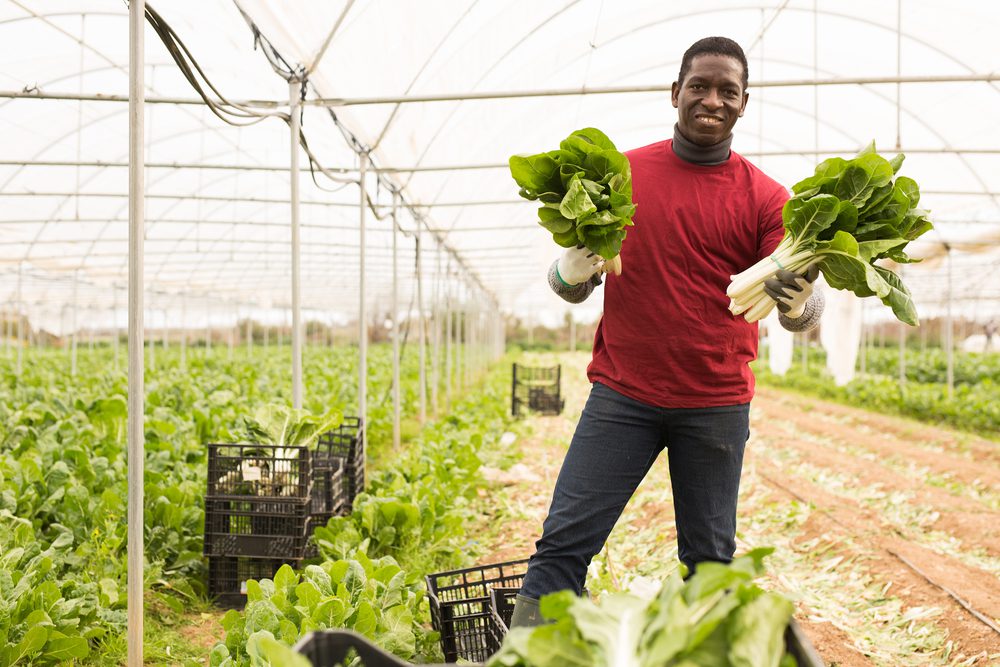The American agricultural landscape has a rich and complex history, marked by progress and persistent inequalities. Among these disparities is the underrepresentation of Black farmers in the industry, a problem that has deep historical roots but continues to persist today. However, there is a growing movement to change this narrative and encourage more Black individuals to enter the world of agriculture. Let us explore why you should consider becoming a Black farmer in today’s ever-evolving agricultural environment.
Economic Empowerment and Wealth Creation
Becoming a Black farmer provides a unique opportunity to build wealth and economic empowerment within the Black community. As a farmer, you can own and operate your business, cultivating valuable crops and livestock. Doing so contributes to the nation’s food supply, generates income, and creates wealth for yourself and your community.
Owning and operating a farm gives you more control over your economic future, with the potential for substantial financial returns. You can diversify your income streams by selling produce at local markets, participating in community-supported agriculture programs, or even exploring niche markets such as organic farming or agritourism.
Addressing Food Security and Access
In the 21st century, concerns about food security and access to healthy, locally-grown produce have gained prominence. As a Black farmer, you can play a crucial role in addressing these concerns within your community. By growing fresh and nutritious food, you contribute to a more sustainable food system, reducing the reliance on imports and ensuring everyone has access to high-quality produce.
Preserving Cultural Heritage
Agriculture is deeply intertwined with cultural identity, and becoming a Black farmer allows you to preserve and celebrate your heritage. Many traditional farming practices, recipes, and rituals have been passed down through generations, and maintaining these connections to the past can be a source of pride and strength.
Moreover, by embracing your cultural heritage in your farming practices, you can introduce unique crops and flavors to the market, contributing to the diversity of agricultural offerings.
Environmental Stewardship
Sustainable and environmentally responsible farming practices have become increasingly important in our modern world. Becoming a Black farmer allows you to participate in preserving our planet for future generations. You can minimize your environmental footprint and protect natural resources by adopting eco-friendly farming techniques, such as organic farming, rotational grazing, and soil conservation.
Supportive Resources and Networks
The modern agricultural landscape offers various resources and networks to support aspiring Black farmers. Federal and state governments and non-profit organizations provide grants, loans, and technical assistance to help individuals start and maintain their farming businesses. These resources aim to reduce historical disparities and ensure that all aspiring farmers have an equal chance at success.
Furthermore, joining local and national farming organizations can connect you with a community of like-minded individuals, offering valuable guidance and support. These networks provide a platform to share experiences, access knowledge, and gain inspiration from fellow farmers.
The Power of Representation
Becoming a Black farmer is a personal journey and a symbol of representation for the wider community. By entering the agricultural sector, you set an example for future generations, inspiring more young Black individuals to consider farming a viable and rewarding career.
Your presence in the industry helps to challenge stereotypes and break down barriers, showing that farming is an inclusive profession open to people of all backgrounds. Your success inspires others, leading to a more diverse and vibrant agricultural sector.
In a world where change is constant, and the agricultural sector is no exception, the time is ripe for Black individuals to explore the opportunities of becoming farmers. While historical injustices have cast a long shadow, the future holds promise, with a more inclusive and supportive landscape for aspiring Black farmers.
The economic empowerment, potential for wealth creation, and the chance to address food security and cultural heritage preservation all make becoming a Black farmer an attractive proposition. In addition, you can be a steward of the environment, leveraging sustainable practices to benefit both your business and the planet.
Aspiring Black farmers can also draw upon abundant resources, networks, and support systems, all aimed at reducing disparities and fostering success. Finally, your farming journey can be a beacon of hope and a symbol of representation, inspiring future generations to embrace this noble profession.
This story was created using AI technology.














